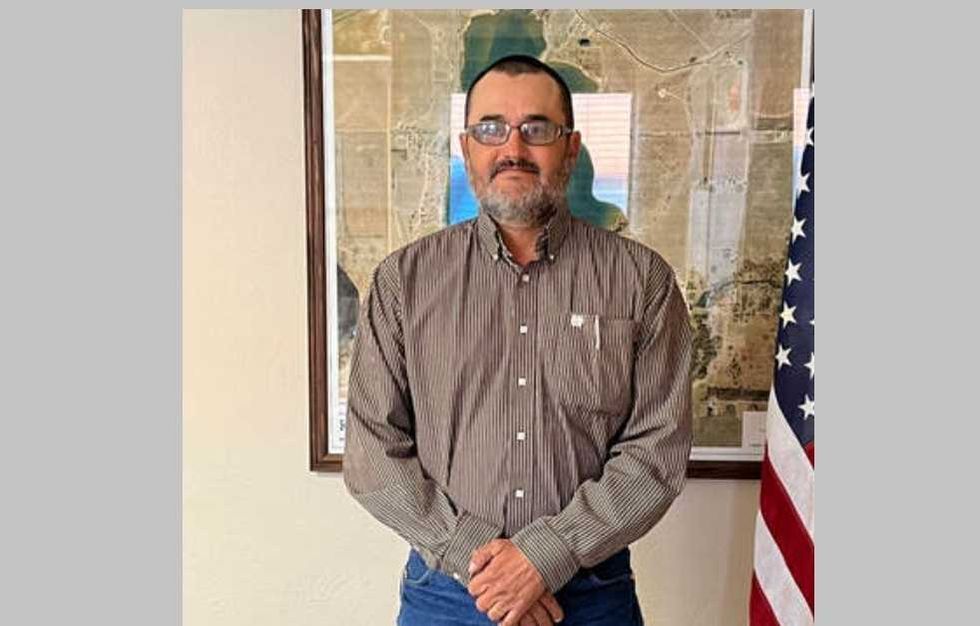USAID Official, Three Contractors Plead Guilty To Half-Billion Dollar Bribery Scheme

Three government contractors and a USAID official have pleaded guilty to a scheme involving paying bribes in order to steer more than half a billion dollars in foreign aid contracts, the Department of Justice said Friday.
Roderick Watson, a USAID contracting officer, admitted to steering money to multiple companies in exchange for more than $1 million in bribes.
“Watson exploited his position at USAID to line his pockets with bribes in exchange for more than $550 million in contracts,” Guy Ficco of IRS Criminal Investigation said in a statement. “While he helped three company owners and presidents bypass the fair bidding process, he was showered with cash and lavish gifts.”
The scheme was possible because of the federal government’s racial “set-aside” laws known as 8(a) contracting, which allow contracting officers to give contracts to companies owned by minorities, women, or veterans without the usual competitive process.
Walter Barnes III, the founder of a Baltimore-area company predicated on taking advantage of those laws, admitted to paying bribes, including a country-club wedding, cash, and a trip to Martha’s Vineyard.
Barnes’s company is called Visant, previously known as PM Consulting Group. It was awarded contracts on the pretense that it was “disadvantaged” because Barnes is black, even as it took in tens of millions of dollars. Barnes used a public defender in his court case, drawing a rebuke from the judge that he presumably had ample resources to pay for his own lawyer.
Also pleading guilty was Darryl Britt, the owner of 8(a) contracting firm Apprio Inc., which is received $271 million in federal contracts since 2004. Both companies also admitted criminal liability.
Beginning in 2013, Britt — a member of Carnegie Mellon University’s Business Board of Advisers — bribed Watson to award contracts to Apprio. When an 8(a) firm becomes too large, it “graduates” from its “disadvantaged” status. But minority contracting laws are notoriously exploited, with minority-owned firms existing simply to win contracts, then subcontracting out the work to other firms. That is often done openly, and above board, with “joint ventures.”
That’s what happened in this case once Apprio could no longer receive contracts without competition. Beginning in 2018, it enlisted Barnes to have sole-source contracts be awarded to his company, Visant, which would then subcontract to Apprio.
To obscure the money trail, bribes would often be passed through Paul Anthony Young, a friend of Barnes’ in Maryland who was president of another subcontractor, and who also pleaded guilty to conspiracy to commit bribery of a public official.
Between 2013 and 2023, Britt, Barnes, and Young “bribed [Watson], a public official, repeatedly—in fact, through hundreds of monthly payments and other things of value, including laptops, cellular phones, jobs for relatives, and other gifts and favors” in exchange for “USAID contracts valued at hundreds of millions of dollars,” a statement of facts accompanying Britt’s plea deal said.
That included a $25.5 million contract for “professional management” awarded in late 2018 to Visant, which was subcontracted out to the other companies. Initially, Britt said to give “only cash to you know who,” but eventually, Young put the USAID contracting officer on the payroll of a company.
On March 28, 2018, Watson put in paperwork for a “sole source, noncompetitive contract” to Visant. The next day, Young spent $3,000 renting a suite for Watson to watch the Washington Wizards play basketball, according to court filings.
Minority-owned “disadvantaged” businesses typically can only get contracts under $4 million without competition, but in June 2018, Watson sought an exception from the Small Business Administration to award a contract north of $20 million.
In August, Watson grumbled that he could make much more money as an 8(a) contractor than he could as a government employee. Young encouraged him to start a firm, but Watson said he wanted to wait until he was more “thoroughly entrenched with [US]AID and now the State Department” so he could use his connections to get contracts.
The contracts totaled $544 million between 2013 and 2022, according to Barnes’ plea agreement. They began with a $4.8 million “staffing contract” in 2013 and a $37 million “institutional support” contract in 2014 and escalated to a $95 million contract for “technical support” in 2022. The awarded contracts amounted to $257 million, plus there were three potential contracts totaling $287 million near the end of the scheme that were not ultimately awarded. (Sen. Brian Schatz (D-HI) said on Thursday that there was only $50 million in waste in total at USAID).
Two USAID contracts awarded to Apprio, for $4.4 million and $1.8 million, are listed in spending records as for “education/training-lectures.” A $30 million USAID contract to Visant is listed as “for the innovation design and advisory services team to obtain access to specialized buy-in support to a variety of technical design firms through the management of a PMO.” A $25 million contract is listed as simply “to obtain professional management services from an 8(a) small business contractor.”
A mark of how minority set-aside contractors routinely game the system is how small companies receive contracts for widely divergent fields of work — a sign that they are simply having others do it or hiring staff afterwards with little knowledge of the subject area. Apprio’s contracts with government agencies range from developing websites to medical care to human resources to “ebola efforts.”
Other USAID contracts to Visant include a $15 million contract “to help protect cyberspace and communications network domains to block the spread of insecure information.” A $28 million USAID contract was for “lab institutional contractor – mega bridge contract,” and a $40 million contract was for “creation of the PDEX award.” A $204,000 contract was for a “senior advisor to the Belarus country director.”
The Trump administration shuttered USAID following concerns that much of its foreign aid was wasted or diverted to politically connected Americans. That contention was met by outrage on the part of Democrat lawmakers, who stormed its office and called it a conspiracy theory.
The Department of Justice said that Apprio should have to pay a $52 million penalty and Visant should have to pay $86 million, but that the companies did not have the funds to pay. It agreed to accept $500,000 from Apprio and $100,000 from Visant, and to defer criminal prosecution of both companies. USAID official Watson faces up to 15 years in prison, while the company owners face up to five years in prison.
In another USAID fraud case, Stephen Paul Edmund Sutton, a British citizen who worked for a USAID contractor, pleaded guilty May 19 to taking kickbacks related to an electric program in Pakistan. Sutton and a co-conspirator who worked for him were in charge of giving out subcontractors to Pakistani vendors to perform work.
In 2015, the pair created two companies and had the contractor pay them for forklift and crane services. Then those companies hired Pakistanis for half the amount. Prosecutors said the agency was defrauded of $100,000. Sutton was ordered to be handed over to immigration authorities instead of jail.
The Daily Wire previously revealed that USAID’s inspector general told a federal court in November that another foreign aid contracting official, Matthieu Zahui of the African Development Foundation, had steered contracts to a friend who secretly paid him personally. Zahiu has not been criminally charged as of now.
Originally Published at Daily Wire, Daily Signal, or The Blaze
What's Your Reaction?
 Like
0
Like
0
 Dislike
0
Dislike
0
 Love
0
Love
0
 Funny
0
Funny
0
 Angry
0
Angry
0
 Sad
0
Sad
0
 Wow
0
Wow
0












































































